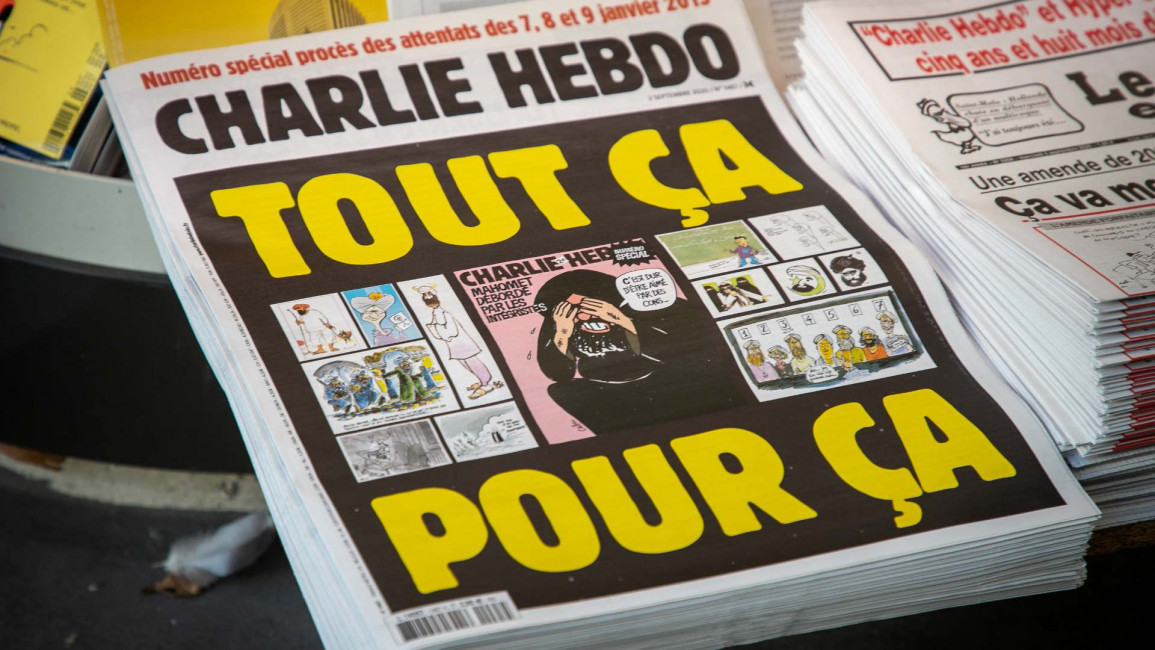France's Charlie Hebdo sells out with Prophet Mohammed cartoons reprint
Wednesday's issue featured a dozen cartoons mocking the prophet of Islam, including images that sparked huge protests when first published, to mark the start of the trial this week of alleged accomplices to the massacre.
Charlie Hebdo distributed three times its normal print run on Wednesday, but eager readers pounced on the paper and many intending to grab their copy later in the day were left frustrated.
A new batch of 200,000 copies is currently being printed and will hit French newstands from Saturday.
"It shows that we are supported, that freedom of expression, secularism and the right to blasphemy are not obsolete values, and that they are supported by the French public who chose to buy the issue," a Charlie cartoonist who goes by the pen name "Juin" told AFP.
Twelve people, including some of France's most celebrated cartoonists, were killed on January 7, 2015, when brothers Said and Cherif Kouachi went on a gun rampage at the paper's offices in Paris.
"We will never lie down. We will never give up," director Laurent "Riss" Sourisseau wrote in an accompanying editorial to Wednesday's issue, which was headlined: "All of this, just for that."
The decision to reprint the cartoons sparked angry condemnations from Pakistan, Iran and Turkey as well as Egypt's highest Muslim authority Al-Azhar.
On Friday, thousands rallied in anti-France demonstrations across Pakistan, with protestors calling for boycotts and the French ambassador's expulsion.
But Charlie Hebdo defended its decision in the editorial, arguing that republishing the cartoons was "essential".
"We worked on the principle that some people don't know the cartoons, some weren't even born when they were published by Charlie in 2006, and they need to understand why the attacks happened," Juin said.
"The right to blasphemy and freedom of speech exist if we use it. For us, it was justifiable to reprint the cartoons because it shows that these rights still exist and allows us to defend them," he added.
Follow us on Facebook, Twitter and Instagram to stay connected



